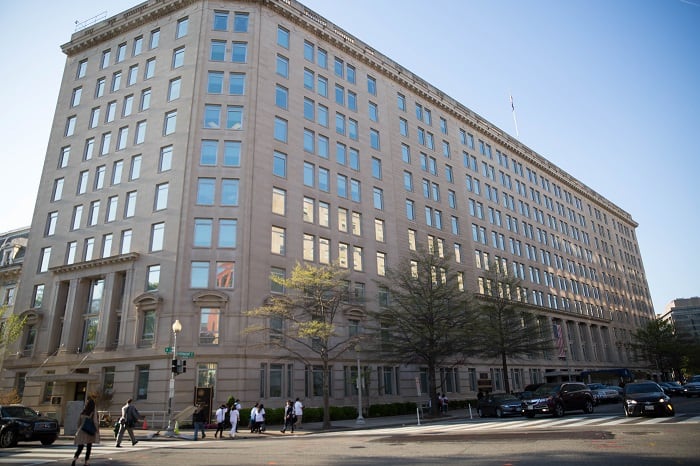Emancipation Day, Juneteenth Independence Day, and Black Independence Day — June 19 goes by many names. None are more famous than “Juneteenth.” On this day in 1865, Army Maj. Gen. Gordon Granger rode into Galveston, Texas, and announced the end of the Civil War and the end of slavery.
Granger read the proclamation: “The people of Texas are informed that, in accordance with a proclamation from the Executive of the United States, all slaves are free. This involves an absolute equality of personal rights and rights of property, between former masters and slaves and the connection heretofore existing between them, becomes that between employer and hired labor. The Freedmen are advised to remain at their present homes and work for wages. They are informed that they will not be allowed to collect at military posts; and they will not be supported in idleness either there or elsewhere.”
Though President Abraham Lincoln issued the Emancipation Proclamation on January 1, 1863, it did little to free slaves from the states that had not yet been liberated by the Union Army. Texas, which was a Confederate state, was the last to be by Union forces after the Civil War.
When Granger and the Union Army made it to Galveston to share the Emancipation Proclamation to the state, he effectively set free an estimated 250,000 people. They were the last slaves left in the newly reunited nation.
While perhaps the most celebrated day in African American history, Juneteenth also marks a momentous occasion in U.S. military history, perhaps highlighting one of its most shining moments as beacon of hope, a breaker of chains. On Juneteenth, it was a force of liberation — something that ought to be celebrated.
“The soldiers represented what this country could be and what this country should be,” Navy Vice Adm. Kevin D. Scott said at a Pentagon ceremony in 2017. “That uniform represented something.”
Before Juneteenth, the Union forces offered opportunity to freed and runaway slaves. They enlisted more than 186,000 African Americans by the end of the Civil War, according to the Smithsonian. “Of these, an estimated 93,542 black soldiers were former slaves who understood firsthand the nation’s fight for freedom.”
Despite the hardships faced by African Americans who joined the military, the possibility of post-war freedom was seen as a ray of hope for many.
“Once let the black man get upon his person the brass letters U.S., let him get an eagle on his button, and a musket on his shoulder, and bullets in his pocket, and there is no power on the earth or under the earth that can deny that he has earned the right to citizenship,” abolitionist Frederick Douglass wrote in 1863.
In spite of many prejudices shown by soldiers in the Union Army, African American soldiers faithfully served, and roughly one-third who enlisted lost their lives in battle.
Even though slavery wasn’t technically abolished until the passage of the 13th Amendment on Dec. 18, 1865, Juneteenth came to serve as an unrivaled symbol of freedom for African Americans — one that was bolstered by the military.
A year after Union forces liberated Galveston, the first celebration took place in 1866. Despite emancipation being nation-wide, many African Americans fled the south. With them, went the Juneteenth celebrations including parades, spiritual gatherings, historical and theatrical performances, eventually permeating Black communities across the country.
“I am three generations removed from slavery in the state of Virginia, and so when I think about Juneteenth, I think what it must have been like to be in Galveston, Texas, on that day when those soldiers were over in the town,” Scott added.
This year, conversations around Juneteenth have grown exponentially as protests around the country erupted in May after the death of George Floyd, a black man prosecutors say was murdered by a white Minneapolis police officer.
As a result, more than 40,000 National Guard troops were activiated at the peak of the civil unrest to keep the peace. In addition, President Donald Trump raised the idea of sending in federal troops. All this helped fuel discussions about military’s roll in race issues — seen as perhaps a stark contrast to Union troops riding in to liberate Galveston in 1865.
Other service members, on the other hand, have joined the cause helmed by the Black Lives Matter organization seeking to “defund” or “demilitarize” the police.
“We started to organize to show that veterans are standing up for Black Lives Matter — and not just that we’re standing up for them, but that we want to stand with them,” said David Smith, 39, a petty officer second class in the U.S. Navy, told the Washington Post. “I feel like there’s a kind of divide between the military and civilian world, and we’re trying to build a bridge to show them there’s support here.”
The Post also reported that “a wave of military veterans who are hosting three days of rallies this weekend in honor of Juneteenth.”
Sarah Sicard is a Senior Editor with Military Times. She previously served as the Digitial Editor of Military Times and the Army Times Editor. Other work can be found at National Defense Magazine, Task & Purpose, and Defense News.




